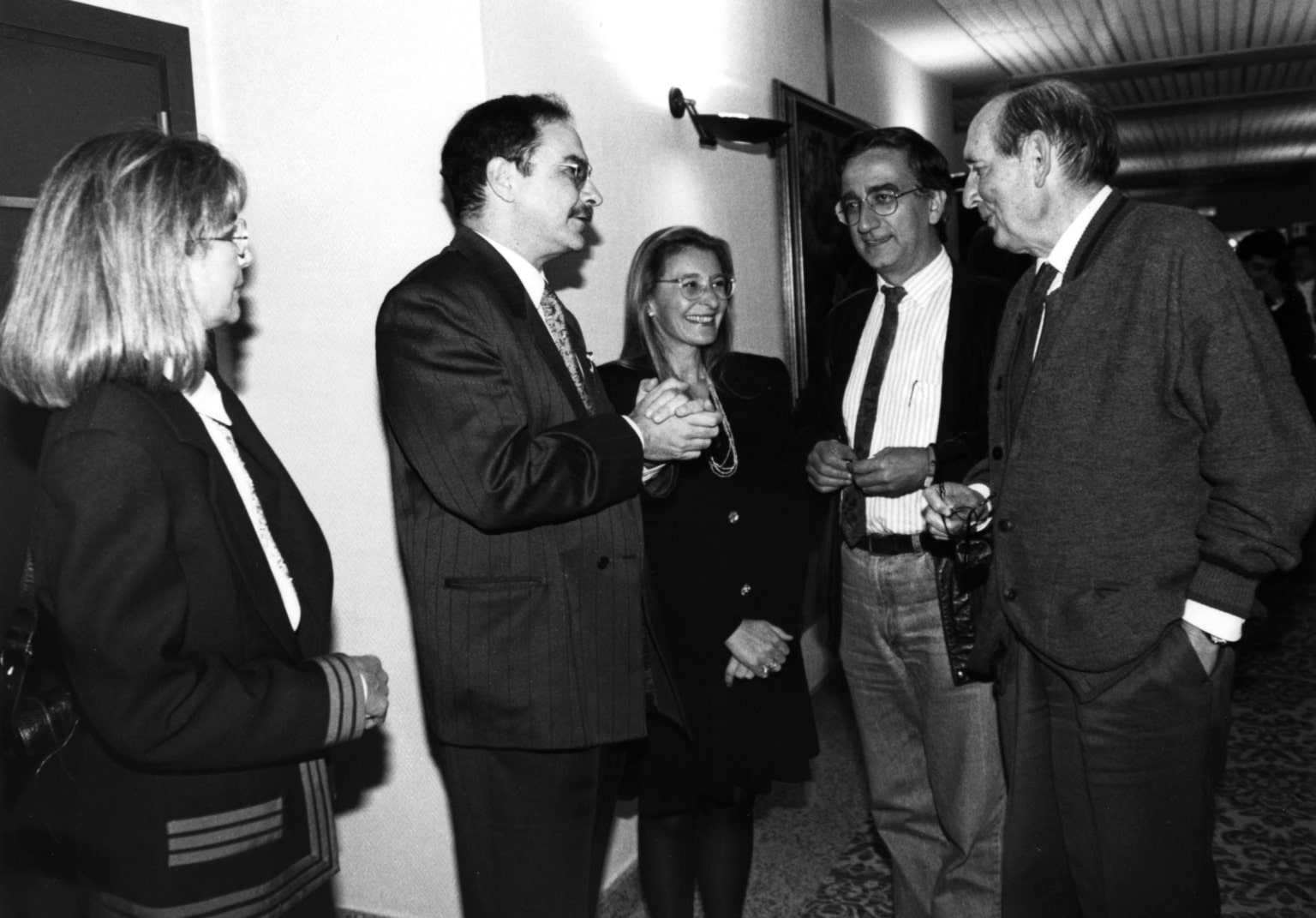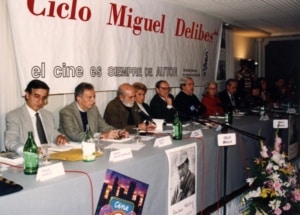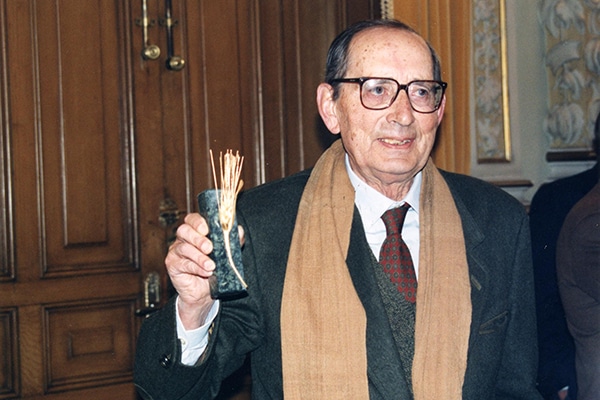
- The festival will screen two special sessions with two of the local writer’s favourite films: Jacques Tati’s ‘Mon Oncle’, and Elia Kazan’s ‘A Streetcar Named Desire’
16/10/2020.- The Valladolid International Film Festival will celebrate Miguel Delibes’s centenary with The Films That Delibes Loved: two special sessions in which two of the Valladolid writer’s favourite films will be screened: Mon Oncle (Jacques Tati, 1959) and A Streetcar Named Desire (Elia Kazan, 1951). The sessions will be held on Monday 26 at 4:45 pm and Tuesday 27 at 8:15 pm respectively, both in room 11 of Broadway cinemas.
The Festival thus pays tribute to one of its most loyal spectators on the occasion of the centenary of his birth, on 17 October, 2020. Seminci, in words written by Delibes himself on the first issue of the Seminci Magazine in 1969, “is an extraordinary endeavour that had the virtue of being well oriented from the beginning. At a time when authentic quality films were not found in Spain, the Valladolid Film Festival offered the best films that were being made in the world”.
As César Combarros recalls in the book 50 años de la Semana Internacional de Cine de Valladolid. Una ventana al mundo (50 years of the Valladolid International Film Festival. A window to the world), Delibes’s relationship with the cinema “had begun when he was only six years old, in the old Hispania theatre, and some time later he began to work in El Norte de Castilla as a substitute for film critics”.
The work of the Valladolid writer has been adapted to the cinema nine times. The first was in 1962, when Ana Mariscal brought the novel El Camino to the big screen. Antonio Giménez Rico adapted Delibes’s words to film on three occasions: Retrato de familia (1976), El disputado voto del señor Cayo (1986) and Las ratas (1996). Two more were directed by Antonio Mercero: La guerra de Papá (1977), based on the novel El príncipe destronado, and El tesoro (1988). Los santos inocentes (1984), by Mario Camus; La sombra del ciprés es alargada (1990), by Luis Alcoriza, and Una pareja perfecta (1998), by Francesc Betriú, based on Diario de un jubilado, complete the list.
Some of these adaptations were first screened in Seminci. The 31st Seminci premiered El disputado voto del señor Cayo, a film that was awarded with the Silver Spike –it was the first time a Spanish film won it– and the audience award. Two years later, also in the Official Section, the film El tesoro was programmed, starring Jose Coronado, Lucía Dominguín and Álvaro de Luna, while the 42nd edition opened with the premiere of Las ratas.

In 1993, the Valladolid International Film Festival decided to organize the cycle Miguel Delibes, en imágenes (Miguel Delibes, in images), a sample of six film adaptations of his books, three television productions and two documentaries, as well as Doctor Zhivago, whose dubbing into Spanish was supervised by Delibes himself, and Función de noche (Josefina Molina, 1981), which includes scenes from the theatrical adaptation of Cinco horas con Mario. On the occasion of this retrospective, the Festival commissioned writer Ramón García, a specialist in the work of the Valladolid author, the book Miguel Delibes. La imagen escrita, and also gave him a special Golden Spike.
Delibes was also paid a posthumous tribute in 2010, a few months after his death, with a round table moderated by writer Gustavo Martín Garzo and in which director Mario Camus, actor Juan Diego and writer Ramón García participated. Finally, our last edition held the preview of the documentary La X de MAX, an RTVE production directed by Gemma Soriano and Manel Arranz, which deciphers the meaning of the letter ‘X’ in the work of Miguel Delibes.



























![Logo Foro Cultural de Austria Madrid[1]](https://www.seminci.com/wp-content/uploads/2024/09/Logo-Foro-Cultural-de-Austria-Madrid1-300x76.jpg)








